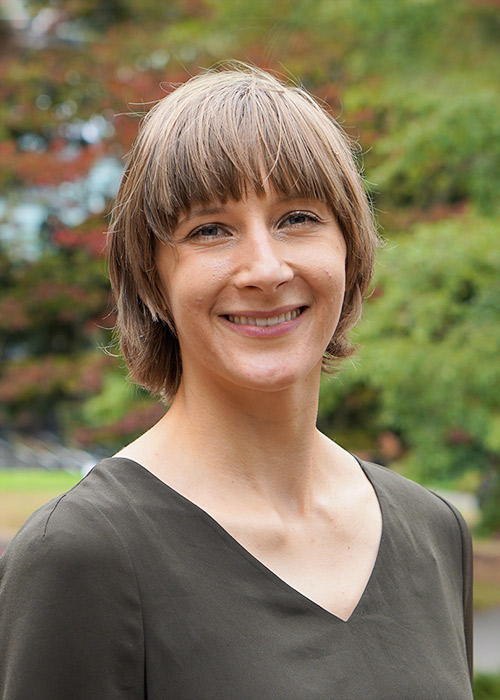
What influenced you to pursue a degree in nutritional sciences?
I’ve never seen myself as a “science person,” but the more I got into food and nutrition, the more I found myself needing that science background! I opted to pursue an MPH with the Graduate Coordinated Program in Dietetics (GCPD) training to facilitate a career shift towards food access work, where I can advise on nutritional programs and policy.
Why did you choose UW?
Living in Detroit taught me that people’s resources and environment are the primary drivers of nutrition behaviors, not individual knowledge or willpower. I needed a program that put health disparities in their place at the forefront of disease drivers and focused on equipping future nutrition professionals to remove systemic barriers to health.
I also knew I would need a small, tight-knit program to provide the support to succeed in an accelerated curriculum, and I found it here. The Nutritional Sciences Program faculty are extraordinary mentors who balance the fire hose of information inherent to the quarter system with opportunities to reflect and synthesize key takeaways.
The Top Scholar award allowed me to work directly with Dr. Marie Spiker for two quarters. I engaged a systems framework in projects addressing dietary composition and sustainability as well as mapping the NSP faculty’s research network, created a jumping off point for quantitative analysis of National Health and Nutrition Examination Survey (NHANES) data, and joined conversations envisioning the NSP’s future direction.
What kind of research or internship are you doing?
My fieldwork focused on nutrient dense food access in Detroit, MI. I assisted with the Great Grocer Project (GGP), a research partnership between Wayne State University, the Michigan Independent Retailers’ Association, and the Detroit Food Policy Council that seeks to evaluate, assist, and promote independent grocers in a city facing food apartheid. This project allowed me to put my first year MPH common core qualitative research skills to work in interviewing community members regarding their relationship with a local grocer. I also researched and drafted a policy brief advocating for tax incentives for food retailers in Detroit.
How would you describe the benefits of your research or how it may potentially impact public health?
There are significant ties between food access, or even living near a full-line grocery store with quality offerings, and positive health outcomes. Detroiters shoulder a significant non-communicable disease burden from cardiovascular disease, diabetes, and cancer, all of which are directly influenced by diet and poor food access. The Great Grocer Project also works to remediate the effects of the racist housing, tax, business lending and other policies that created Detroit’s inequitable food access landscape. The project’s activities will, in the long term, help to address the barriers to opening and successfully operating stores in the city, and improve the health of its Black and Latinx residents.
What are your future goals?
After graduation, I plan to return to Detroit and work for a community-based organization on nutrition focused public health initiatives. My RDN certification will also open doors to work in a federally qualified health center, providing patient-centered counseling for people with Medicaid who need help managing their blood sugar levels or adapting their diet for dialysis.
What extracurricular activities do you enjoy?
In Seattle, I am an avid hiker who also procrastibakes, cycles, jogs, or climbs during the week. Back home in Detroit, you’ll find me tending vegetables in my guerrilla garden and chipping away at 50+ years of “deferred maintenance” projects on our beloved 1912 duplex.
What do you like most about living in Seattle?
Mountains. There’s a jaw-dropping view around every corner.
What advice would you give a student who is considering graduate study with the UW Nutritional Sciences program?
Clear your schedule for the next two years! The GCPD is likely the most intensive undertaking of your life, and you’ll need to mentally prepare yourself and your community accordingly. That said, don’t be put off by the breakneck pace. The staff, faculty, and other students in your cohort are a wellspring of encouragement and will challenge you to produce work you’re really proud of.
Are you interested in studying nutritional sciences as a graduate student? Explore graduate study and RDN training offerings in the UW Nutritional Sciences Program.